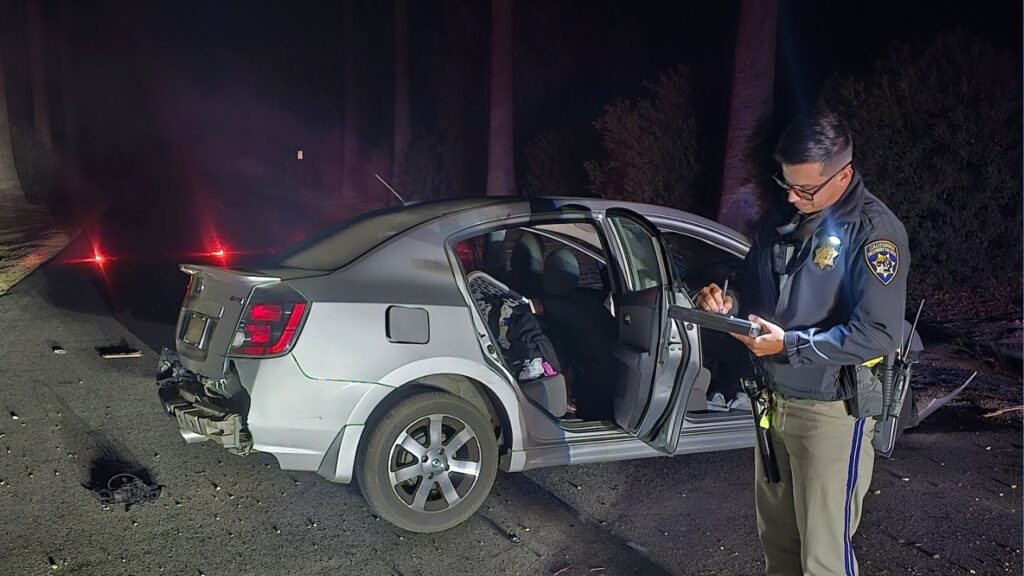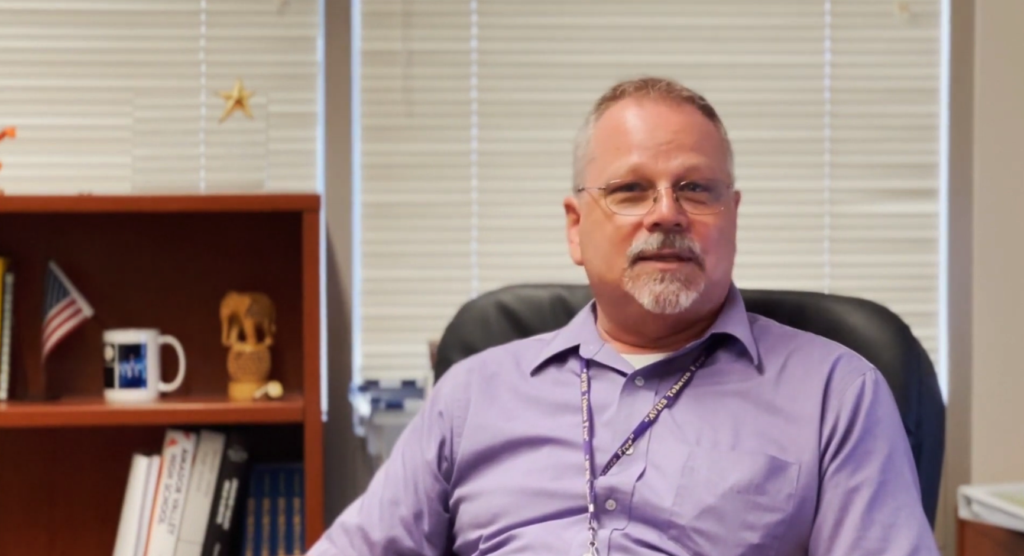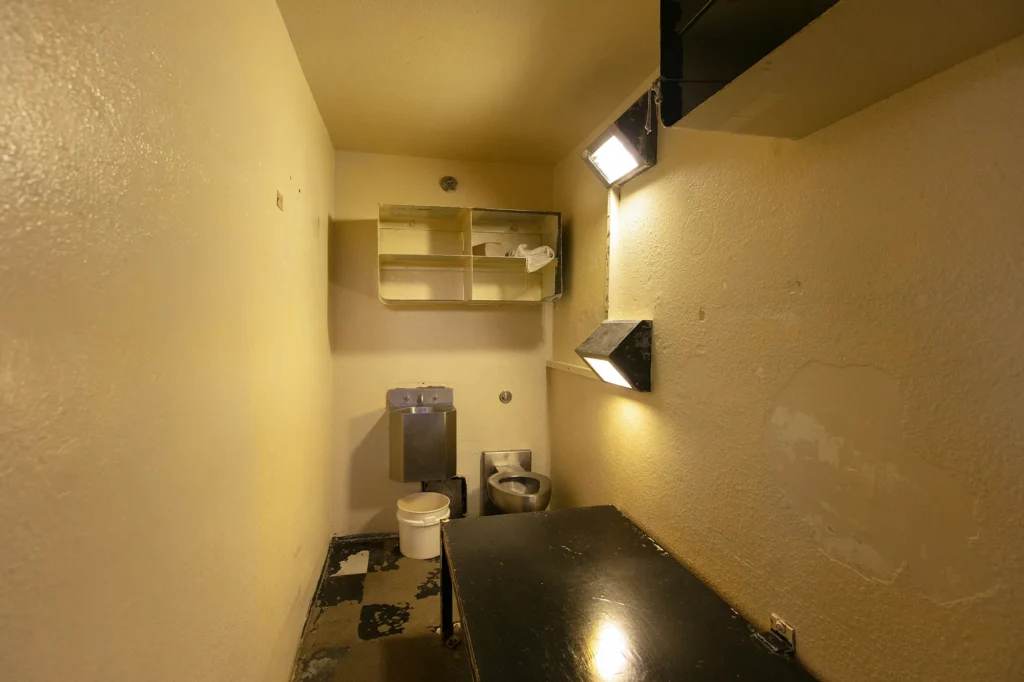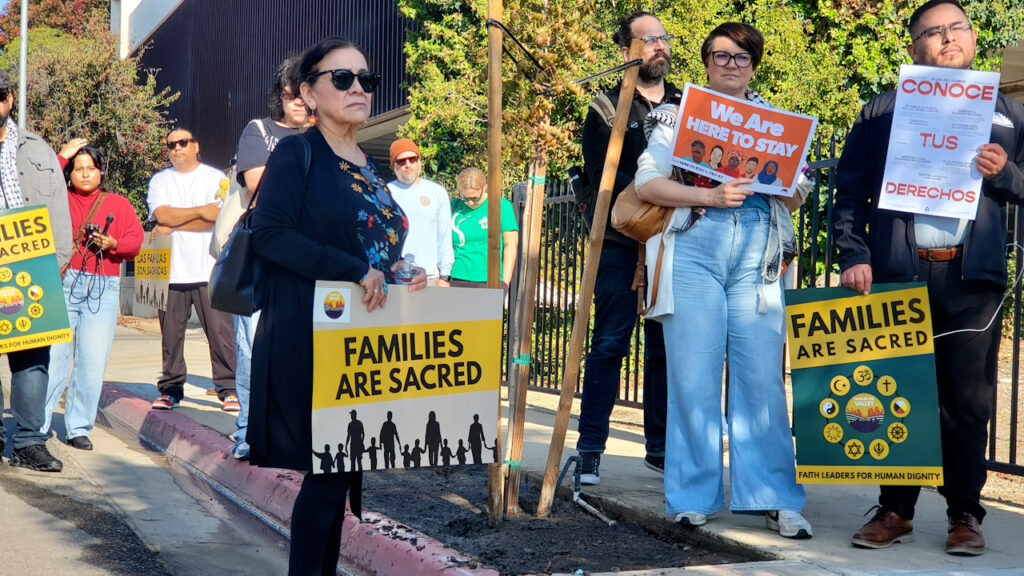California's prison system implements mandatory canine searches for everyone entering facilities, raising concerns about visitor deterrence and potential bias. (CalMatters/Rahul Lal)

- New policy subjects all prison visitors, including staff and attorneys, to canine searches with refusal potentially leading to exclusion.
- Despite evidence that prison employees are often the source of contraband, the policy broadly targets all who enter facilities.
- Advocates worry the discretionary searches will create bias and further burden families trying to maintain connections with incarcerated loved ones.
Share
This story was originally published by CalMatters. Sign up for their newsletters.
Anyone entering a California prison — including visitors, staff and attorneys — will be subject to a canine search under a new policy rolling out across the state.
CalMatters obtained a California Department of Corrections and Rehabilitation memo from March 10, announcing the statewide implementation of the policy.
It said the canine searches are meant “to combat the introduction of illegal drugs and contraband into (prisons) and reduce the overall level of narcotics, contraband, and criminal activity within the incarcerated population, thereby enhancing the safety and security of all institutions,” the memo stated.
Now, visitors and attorneys will not be permitted to visit an incarcerated person in a way that would allow for close contact if they refuse a search. In some cases, a refusal “may lead to exclusion from all (California Department of Corrections and Rehabilitation) institutions,” according to the memo.
All searches, including of staff, will be at the discretion of prison officials.
Growing Pressure Over Prison Drug Problems
In recent years, the corrections department has faced mounting pressure over drugs making their way into facilities, but it has been criticized for its approach to managing the crisis.
Last year, a woman received a $5.6 million settlement after she was sexually violated during a strip search while she was trying to visit her husband at a prison in Tehachapi.
An oversight agency in 2023 found that drugs continued to get inside prisons during the COVID-19 pandemic when public health protocols prohibited visits.
“We know where the contraband is coming from,” said Kate Chatfield, executive director of California Public Defenders Association. “People who work in the institutions know where it’s coming from. The contraband is coming from the employees of the institution. But they are blaming everyone. This will have a real adverse impact on the ability of people to visit incarcerated people.”
Recommendations From Oversight Agency
The Office of Inspector General in its report issued a set of recommendations, including one related to canines. The agency reviewed the department’s strategies to prevent drugs from entering prisons and found that it did not “take full advantage of its canine program.”
“We understand that reducing the prevalence of drugs in California’s prison system is an ongoing challenge for the department,” the audit stated. “However, drugs have entered prisons even after the department implemented COVID-19 response efforts and suspended in-person visiting.”
Shaun Spillane, spokesperson for the Office of Inspector General, said in a statement to CalMatters that the new memo “is silent regarding the frequency of the searches, so it is unclear how often canines will be used to carry out these drug interdiction efforts.”
The California Department of Corrections and Rehabilitation found contraband including manufactured weapons, drugs and escape tools in a recent sweep at 11 prisons, said spokesperson Emily Humpal in a statement to CalMatters.
Concerns About Visitor Impact
The department “oversees, manages, and is responsible for the safe and secure housing of incarcerated individuals and therefore continues to evaluate ways to improve consistent statewide application of detection and intervention systems,” said Humpal.
The department’s new direction has raised widespread concern among advocates and family members of incarcerated people, who said that random search selection leaves room for bias and will disproportionately target visitors.
“This is scary,” said Christina Brown, executive director of the nonprofit Bridges of Hope. “Families already endure emotional and financial strain to maintain a connection to their loved one. Being subject to these searches, even if they’re innocent, deters future visits because they won’t want to go back.”
About the Author
Cayla Mihalovich is a California Local News fellow.
___
This article was originally published on CalMatters and was republished under the Creative Commons Attribution-NonCommercial-NoDerivatives license.





















